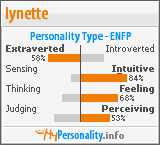Verdi's MacBeth: Witches' Chorus "Tre volte miagola la gatta in fregola"
>> Sunday, October 25, 2009
Macbeth is an opera in four acts by Giuseppe Verdi, with an Italian libretto by Francesco Maria Piave and additions by Andrea Maffei, based on Shakespeare's play of the same name. It was Verdi's tenth opera and also the first of Shakespeare's plays which he adapted for the operatic stage.
Written after the success of Atilla in 1846 by which time the composer had become well established, it was before the great successes of 1850 to 1853, Rigoletto, Il trovatore and La traviata which propelled him into universal fame. As sources, Shakespeare's plays provided Verdi with lifelong inspiration: some, such as King Lear were never realized but he wrote his two final operas using Othello as the basis for Otello (1887) and The Merry Wives of Windsor as the basis for Falstaff (1893).
The first version of Macbeth was completed during the middle of what Verdi was to describe as his "galley years". Ranging from 1842 to 1850, this period saw the composer produce 14 operas, but by the standards of the subject matter of almost all Italian operas during the first fifty years of the 19th century, Macbeth was highly unusual. The 1847 version was very successful and it was presented widely. Pleased with his opera and with its reception, Verdi wrote to Antonio Barezzi, his former father-in-law and long-time supporter, on 25 March 1847 just about two weeks after the premiere: "I have long intended to dedicate an opera to you, who have been father, benefactor, and friend to me. It was a duty I should have fulfilled sooner if imperious circumstances had not prevented me. Now, I send you Macbeth which I prize above all my other operas, and therefore deem worthier to present to you"
The 1865 revision, produced for Paris in a French translation and with several additions, was less successful and the opera largely faded from public view until the mid-20th century revivals.
2005, Gran Teatre del Liceu
Conductor - Bruno Campanella
Symphony Orchestra and Chorus of the Gran Teatre del Liceu
Act III, Scene 1
Chorus "Tre volte miagola la gatta in fregola"
Setting: The witches' cave
Written after the success of Atilla in 1846 by which time the composer had become well established, it was before the great successes of 1850 to 1853, Rigoletto, Il trovatore and La traviata which propelled him into universal fame. As sources, Shakespeare's plays provided Verdi with lifelong inspiration: some, such as King Lear were never realized but he wrote his two final operas using Othello as the basis for Otello (1887) and The Merry Wives of Windsor as the basis for Falstaff (1893).
The first version of Macbeth was completed during the middle of what Verdi was to describe as his "galley years". Ranging from 1842 to 1850, this period saw the composer produce 14 operas, but by the standards of the subject matter of almost all Italian operas during the first fifty years of the 19th century, Macbeth was highly unusual. The 1847 version was very successful and it was presented widely. Pleased with his opera and with its reception, Verdi wrote to Antonio Barezzi, his former father-in-law and long-time supporter, on 25 March 1847 just about two weeks after the premiere: "I have long intended to dedicate an opera to you, who have been father, benefactor, and friend to me. It was a duty I should have fulfilled sooner if imperious circumstances had not prevented me. Now, I send you Macbeth which I prize above all my other operas, and therefore deem worthier to present to you"
The 1865 revision, produced for Paris in a French translation and with several additions, was less successful and the opera largely faded from public view until the mid-20th century revivals.
2005, Gran Teatre del Liceu
Conductor - Bruno Campanella
Symphony Orchestra and Chorus of the Gran Teatre del Liceu
Act III, Scene 1
Chorus "Tre volte miagola la gatta in fregola"
Setting: The witches' cave





























0 comments:
Post a Comment